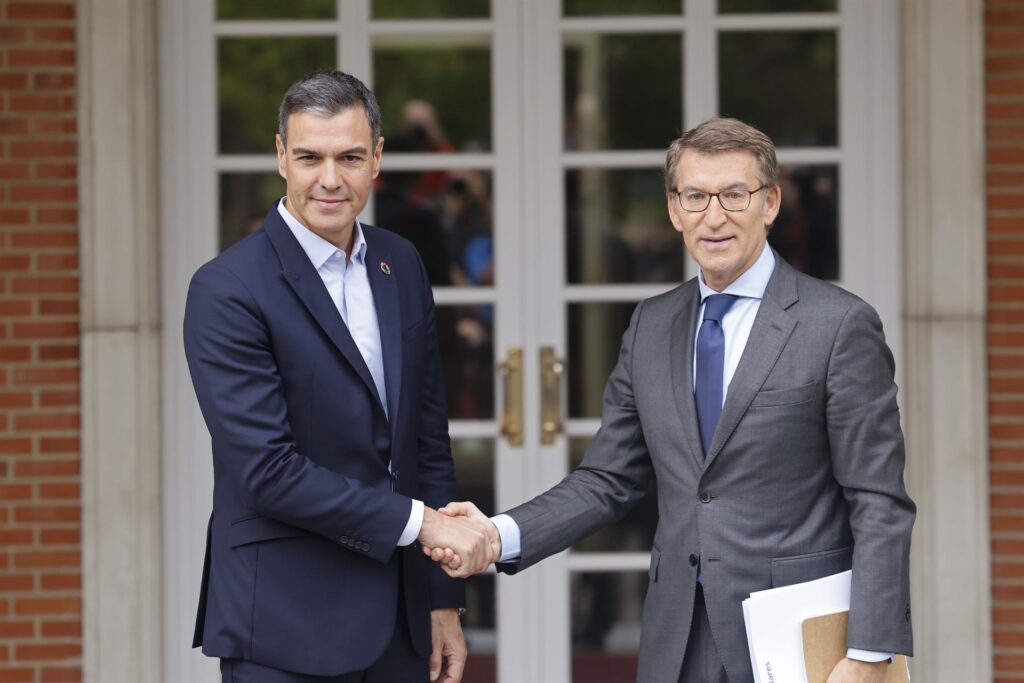
Government formation in Spain: More questions than answers
As Spain’s parliament meets on September 26 and 27 to discuss formation of the next government the uncertainty following the general elections is continuing.
General elections were held in Spain on July 23. The results continued the trend that has defined the Spanish politics since 2015. For last almost one decade no party has been able to win seats required for absolute majority.
Spain has a bicameral legislature. The upper house is called Senado (Senate) while the lower house is called Congreso de los Diputados (Congress of the Deputies). The Senado has 208 seats and the Congreso has 350 seats. The powers to govern are mostly concentrated in the lower house. To form the government, any party needs to secure absolute majority – 176 seats – in the Congreso.
The political landscape in Spain is dominated by two national parties – the left-wing party Partido Socialista Obrero Español (PSOE) and the right-wing party Partido Popular (PP). The PSOE is currently in power with Pedro Sánchez as head of the government. The head of the government is referred to as Presidente del Gobierno (President of the Government) although internationally in popular discourse he is referred to as prime minister. Apart from the PSOE and the PP there are a number of regional parties as well.
In the general elections just concluded, the PP won 137 seats and the PSOE won 121 seats. Other prominent parties in these elections were Vox, a far-right party and Sumar, a coalition of several left and far-left parties. Vox won 33 seats while Sumar was able to secure 31 seats. Some regional parties that won seats in these elections are: ERC – 7 seats, Junts – 6 seats, EH Bildu – 6 seats, PNV – 5 seats, BNG – 1 seat, CCA – 1 seat, UPN – 1 seat. Of these ERC and Junts are from Catalonia, EH Bildu and PNV are from Basque region, BNG is from Galicia, CCA is from Canary Islands and UPN is from Navarre.
Following the election results, Spain’s King Felipe VI invited Alberto Núñez Feijóo, president of the PP to form the government as the PP has won the largest number of seats in these elections. The investiture is scheduled on September 26 and 27.
However, lack of absolute majority is a major hurdle for either PP or PSOE. Both the parties would require support of smaller regional parties should they want to have a shot at forming the next government.
Should Feijóo fail to form the government (of course with support from parties like the Vox and the UPN), Sánchez would be invited for government formation. But with the current numbers even Sánchez would find it difficult to pass the absolute majority mark. The formation of the next government hinges on the support of the regional parties.
Gathering support from the regional parties is a complex issue. The PP and the PSOE have different approaches towards either forming alliance or getting regional parties to support them.
The PP and the PSOE differ on the issue of acquiring support of the parties that are pro-independence. The PP opposes secession and is against negotiating with parties such as Junts, a pro-independence Catalan party and EH Bildu, a pro-independence Basque party. On the other hand the PSOE had negotiated with these parties previously to facilitate Sánchez’s investiture in 2020. Sánchez also later pardoned the lengthy prison sentences given to nine Catalan leaders for holding an independence referendum in 2017. The PP is opposed to any amnesty towards the separatists.
Sensing the difficulty in forming a stable government, Feijóo met Sánchez in an attempt to secure the latter’s support in allowing Feijóo to run the government. Feijóo asked for Sánchez’s support on six issues – territorial organization, democratic regeneration, social welfare, the economy, family policy and water management. In return of Sánchez’s support, Feijóo promised to govern for only two years, instead of the regular four-year term, and hold elections at the end of this period. However, Sánchez has declined Feijóo’s offer.
While the PSOE may be more sympathetic towards regional parties, whether or not they are pro-independence, the PP follows a more nationalistic and union-centric ideology. Feijóo emphasized this in his meeting with Sánchez. Feijóo stated that almost 16 million voters have voted for either the PP or the PSOE while the pro-independence parties have got less than 6% of the total votes. Since majority of the voters have chosen either of the main national party, the regional parties, particularly the pro-independence parties must not be able to dictate the government formation. However, the PSOE is unlikely to agree to this assertion by the PP.
Government formation in Spain is usually a lengthy process and includes several rounds of voting. Failure to win absolute majority on September 26 and 27 would require Feijóo to secure more Ayes than Noes in the second round. Negative result in this round would then prompt the start of the 60-day period, according to Spain’s Constitution, during which the issue of government formation should be resolved. If not then at the end of this period King Felipe VI will invite Sánchez to try and form the government. If Sánchez is also not able to secure the requisite number, Spain will go to polls. In all probability, fresh elections, if necessary, would be held be held at the start of 2024.
Spain has witnessed political instability since last one decade. This period has witnessed growing friction between the pro-independent parties and the nationalist parties. This divide has been responsible to a great extent for the election results not giving a clear mandate. The current situation is also indicating the uncertainty and it would be a tough task for either the PP or the PSOE to provide a stable government at least with their current strength.
Niranjan Marjani
Niranjan Marjani is an Independent Political Analyst and Researcher.

